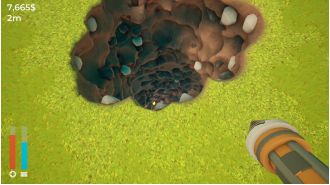Israelis demand immediate ceasefire after hostages killed, causing massive protests across the country.
Hamas killed six hostages before Israeli forces arrived, military says.

Tens of thousands of Israelis, filled with grief and anger, flooded the streets in the wake of the devastating news that six more hostages had been found dead in Gaza. Their voices echoed through the night as they chanted, "Now! Now!" and called for Prime Minister Benjamin Netanyahu to take action and reach a cease-fire with Hamas, in order to bring the remaining hostages home.
This outpouring of emotion marked one of the largest demonstrations in the 11 months of war that has ravaged the country. Many saw it as a possible turning point, although the nation remains deeply divided on the issue.
The Histadrut, Israel's largest trade union, added to the pressure by announcing a general strike for Monday, the first since the war began. Their goal is to disrupt major sectors of the economy, including banking, healthcare, and the country's main airport.
Negotiations for a cease-fire have been ongoing for months, with many blaming Netanyahu for failing to reach a deal that the majority of Israelis support. However, the prime minister has strong backing for his strategy of "total victory" against Hamas, even if it means delaying a deal for the hostages.
In the midst of the chaos, thousands of people gathered outside Netanyahu's office in Jerusalem, some of them overcome with emotion and tears. In Tel Aviv, relatives of the hostages marched with coffins to symbolize the tragic loss.
Shlomit Hacohen, a resident of Tel Aviv, expressed her frustration with the government's decisions, saying, "We really believe that they are more concerned with their own self-preservation than with the lives of the hostages. We need to demand that they stop and do something to bring our loved ones home."
The discovery that three of the six hostages who were found dead were scheduled to be released in a previous proposed cease-fire only added to the fury and heartache of the protesters. Dana Loutaly, a protester, expressed her disbelief and sorrow, saying, "Nothing is worse than knowing that they could have been saved. Sometimes it takes something so awful to shake people up and get them out into the streets."
The Israeli-American hostage, Hersh Goldberg-Polin, was among the victims. The 23-year-old from Berkeley, California, had lost part of his arm in the initial attack and was seen alive in a video released by Hamas in April. This sparked further outrage and protests in Israel.
The other victims were identified as Ori Danino, 25; Eden Yerushalmi, 24; Almog Sarusi, 27; Alexander Lobanov, 33; and Carmel Gat, 40. The Israeli Health Ministry confirmed that they had all been shot at close range and died on either Thursday or Friday. Their bodies were found in a tunnel in the southern Gaza city of Rafah, not far from where another hostage had been rescued the previous week.
Lieutenant Colonel Nadav Shoshani, a military spokesperson, stated that the bodies were found during ongoing combat, but there was no fight in the tunnel itself. He made it clear that Hamas was responsible for the deaths of the hostages.
Hamas had previously offered to release the hostages in exchange for an end to the war, the withdrawal of Israeli forces from Gaza, and the release of a large number of Palestinian prisoners, including high-profile militants. Senior Hamas official Izzat al-Rishq stated that the hostages would still be alive if Israel had accepted a US-backed cease-fire proposal that Hamas had agreed to in July.
As funerals began for the victims, the anger and outrage only intensified. Almog Sarusi's mother, Nira, wrapped her son's body in an Israeli flag and spoke of the pain of losing him, saying, "You were abandoned on and on, daily, hour after hour, for 331 days. You and so many beautiful and pure souls. Enough. No more."
The devastating loss of the six hostages has only deepened the divisions within Israel, both among the people and within the government. It remains to be seen how this tragedy will affect the ongoing war and efforts to reach a cease-fire agreement.
Last night, in the midst of their grief and anger, tens of thousands of Israelis took to the streets after the devastating news that six more hostages had been found dead in Gaza. With chants of "Now! Now!" they demanded that Prime Minister Benjamin Netanyahu take immediate action to reach a cease-fire with Hamas and bring the remaining captives back home.
The sheer mass of people flooding the streets made it the largest demonstration of its kind in the 11 months of this ongoing war. Many protesters felt that this could be a turning point, a sign that the country was finally coming together. However, it was clear that there was still a deep division among the people.
Feeling the pressure, Israel's largest trade union, the Histadrut, called for a general strike on Monday - the first since the war began on October 7th. This strike aimed to disrupt major sectors of the economy, such as banking, healthcare, and even the country's main airport, in an effort to further push the government to take action.
The negotiations for a cease-fire have been dragging on for months, causing frustration and disappointment among many. Most people blame Netanyahu for not being able to reach a deal, despite the fact that a majority of Israelis support it. However, the prime minister still has strong support for his strategy of "total victory" over Hamas, even if it means delaying a deal for the hostages.
Last night, thousands of people, some in tears, gathered outside Netanyahu's office in Jerusalem. In Tel Aviv, relatives of the hostages marched with coffins to symbolize the heavy toll this war has taken on their loved ones. Shlomit Hacohen, a resident of Tel Aviv, expressed her frustration, saying, "We feel like the government is more concerned with their own interests than the lives of the hostages. We need to tell them, 'Stop!'"
The recent discovery that three of the six hostages who were found dead were scheduled to be released in the first phase of a proposed cease-fire in July only added to the fury and despair among the protesters. Dana Loutaly, a protester, said, "It's heartbreaking to think that they could have been saved. Sometimes it takes a tragedy like this to really shake people up and bring them to the streets."
According to the military, all six hostages were killed shortly before Israeli forces arrived. Netanyahu condemned the brutal act, placing the blame on the Hamas militant group for stalling the negotiations. One of the hostages, Hersh Goldberg-Polin, was an Israeli-American from Berkeley, California. He lost part of his left arm in the attack and was seen alive in a Hamas-issued video in April, which sparked further outrage and protests in Israel.
The other five hostages were identified as Ori Danino, 25; Eden Yerushalmi, 24; Almog Sarusi, 27; Alexander Lobanov, 33; and Carmel Gat, 40. The Israeli Health Ministry revealed that autopsies showed they were shot at close range and died on either Thursday or Friday. The army recovered their bodies from a tunnel in the southern Gaza city of Rafah, around a kilometer from where another hostage was rescued alive just last week.
Lieutenant Colonel Nadav Shoshani, a spokesperson for the military, stated that the bodies were found several meters underground while combat was still ongoing. However, there was no firefight in the tunnel itself. He made it clear that there was no doubt that Hamas was responsible for their deaths.
Hamas has offered to release the hostages in exchange for an end to the war, the withdrawal of Israeli forces from Gaza, and the release of a large number of Palestinian prisoners, including high-profile militants. Izzat al-Rishq, a senior Hamas official, argues that the hostages would still be alive if Israel had accepted a US-backed cease-fire proposal that Hamas had previously agreed to in July.
As the funerals for the hostages began, the outrage and sorrow only intensified. Almog Sarusi's body was wrapped in an Israeli flag, and his mother, Nira, spoke of the pain and frustration of having her son abandoned for 331 days. She declared, "Enough. No more. You and so many other beautiful and pure souls have been abandoned daily, hour after hour." The divisions within Israel and the government were clear, but in this moment, the focus was on the heartbreaking loss of six innocent lives.










